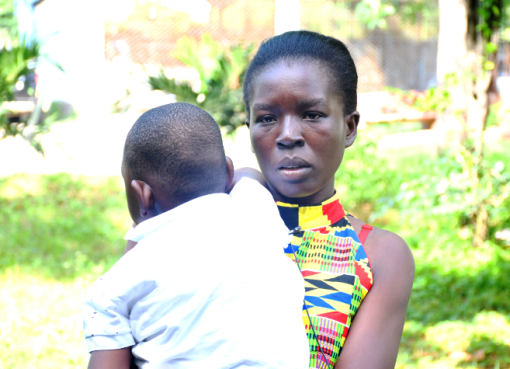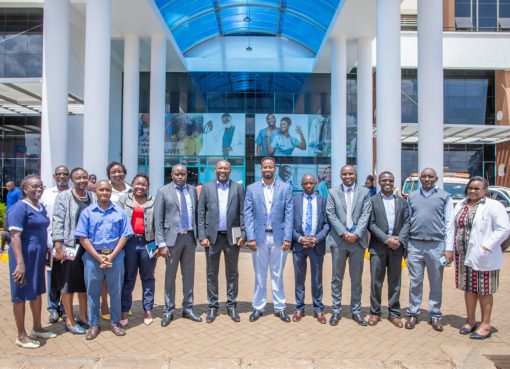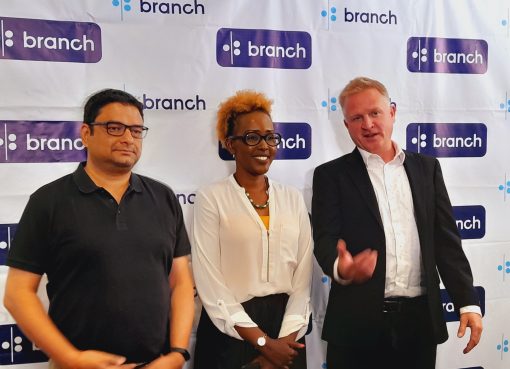Girls have been challenged to pursue careers in science, technology, engineering, and mathematics (STEM) and Information, communications, and Technology (ICT) fields.
According to statistics from The United Nations Educational, Scientific, and Cultural Organisation (UNESCO), only one third of female students in higher education in Kenya choose ICT/STEM courses.
Furthermore, women who earned degrees in STEM were less likely to pursue careers in their fields, opting for work in other sectors. Globally, less than 30 per cent of women are researchers and scientists and work in the ICT/STEM industry.
It is against this backdrop that the Ministry of Education, in partnership with UNESCO, has organised ICT/STEM boot camps in schools aimed at encouraging and empowering girls to pursue studies and careers in Science, Technology, Engineering and Mathematics.
Over 200 girls from different schools in Kajiado and Kwale counties have benefited from the ICT/STEM boot camp.
The bootcamp, which was part of the “Keeping Girls in the Picture” campaign, saw the students receive training on artificial intelligence, coding, robotics, and other foundational 21st century digital skills.
“Keeping Girls in the Picture” is a campaign under the Gender Flagship of UNESCO’s Global Education Coalition which aims to safeguard progress made on girls’ education, ensure girls’ learning continuity during school closures, and promote girls’ safe return to school.
As part of the campaign, a Gender Transformative STEM and Digital Skills Education Training for Teachers was held concurrently, with 40 teachers from Kajiado and Kwale counties benefiting from the training.
The training was geared towards strengthening the capacity of the education system to provide gender-responsive and transformative STEM and digital education and explored how ICT integration in classrooms can enhance STEM learning.
Speaking during the Opening Ceremony of the ICT/STEM boot camp held at Moi Isinya Girls High School in Kajiado, Deputy Director, Directorate of Policy Partnership and East Africa Community Affairs, Elizabeth Otieno, challenged girls to pursue ICT/STEM courses.
STEM education is a key driver in achieving the Sustainable Development Goals (SDG), Vision 2030, and other strategies for improving the quality of education.
Ms. Otieno noted that more boys than girls were performing well in sciences, and there was a need to bring the girls to a level playing field with the boys.
“We have seen more boys performing in sciences during national examinations and girls performing better in humanities. There is a need to mentor girls in the sciences, as this is where the future lies,” she said.
In her remarks, Education Specialist at the UNESCO Multi-sectoral Regional Office for Eastern Africa, Scheherazade Feddal, stressed that Science, Technology, Engineering, and Mathematics are the driving forces behind innovation, progress, and solutions to some of the world’s most pressing challenges.
She noted that STEM education is a key driver in achieving the Sustainable Development Goals (SDG), Vision 2030, and other strategies for improving the quality of education.
“We would like to demystify the notion of girls and science. Girls can do STEM and crack code. It’s imperative that we ensure that everyone, regardless of gender, has a seat at this transformative table,” said Feddal.
One of the beneficiaries of the STEM boot camp, Sharon Vugusta, a Form 3 student at Moi Girls’ High School Isinya, urged girls to work harder in sciences and pursue STEM careers as they can perform better than the boys.
“I encourage girls to work hard in science subjects and enrol in STEM courses, as this is where the future lies. Girls have the potential and can do better than boys in science if they work harder,” she said.
Another beneficiary Happiness Hassan, a student at Il Bissil Girls’ Secondary School, noted that there were a lot of opportunities in ICT /STEM and girls should take up the challenge and work hard in the sciences so as to take advantage of the opportunities.
By Rop Janet





